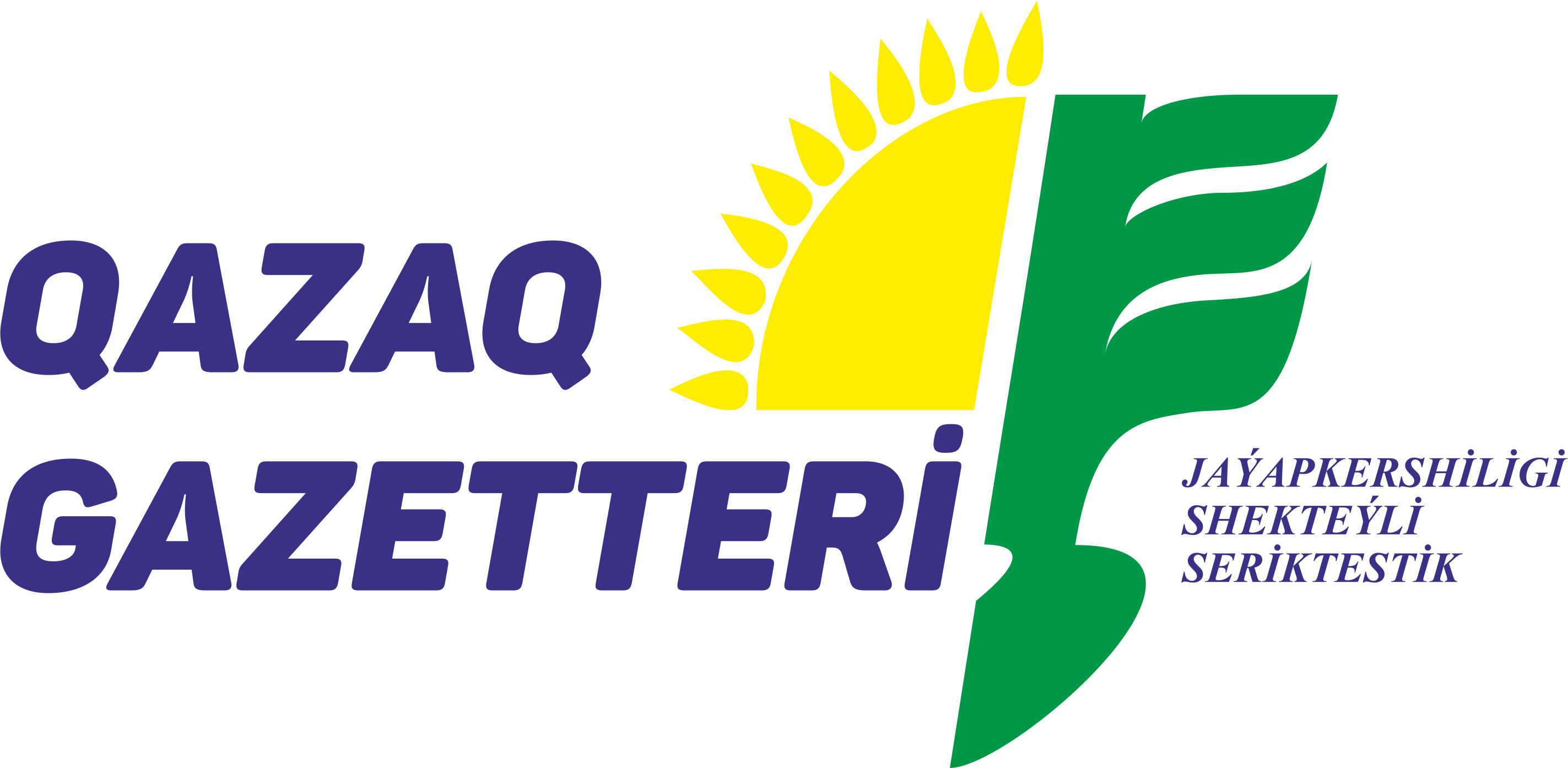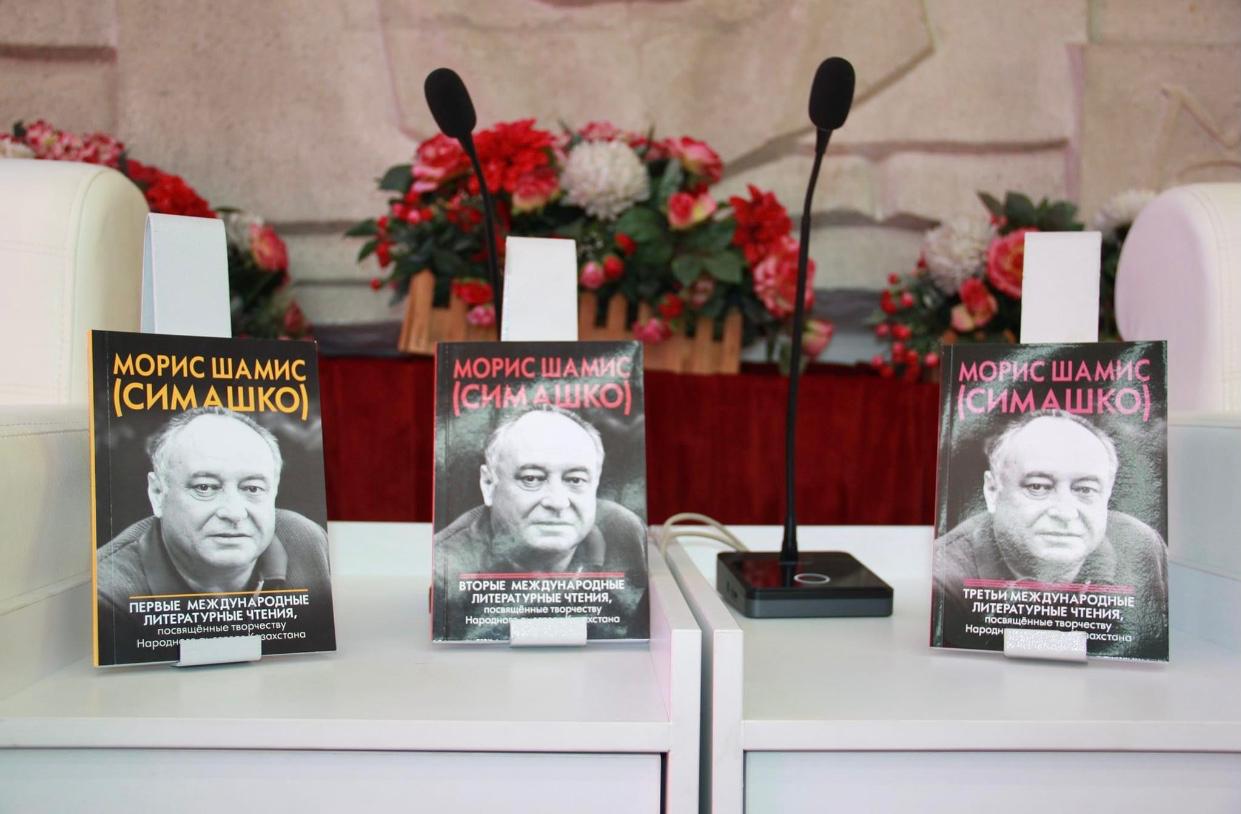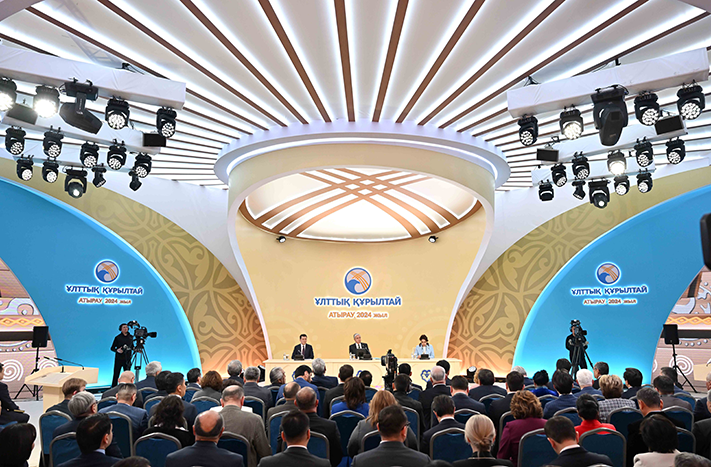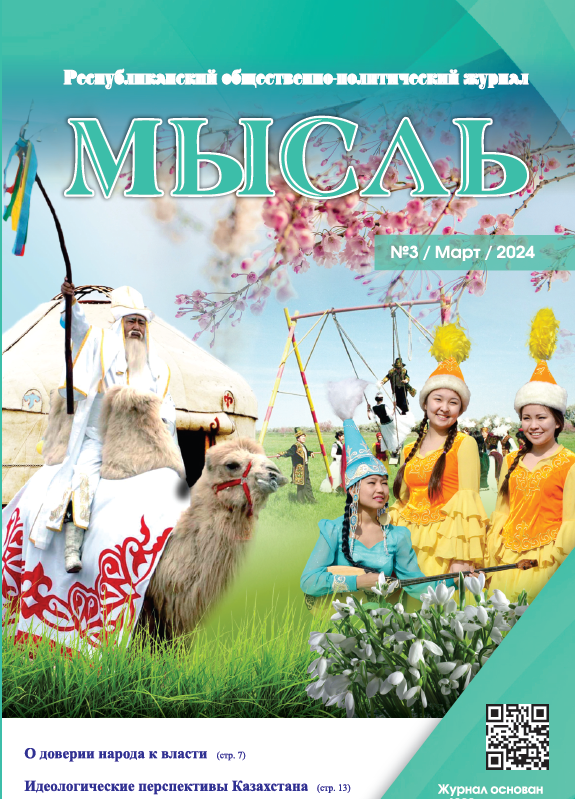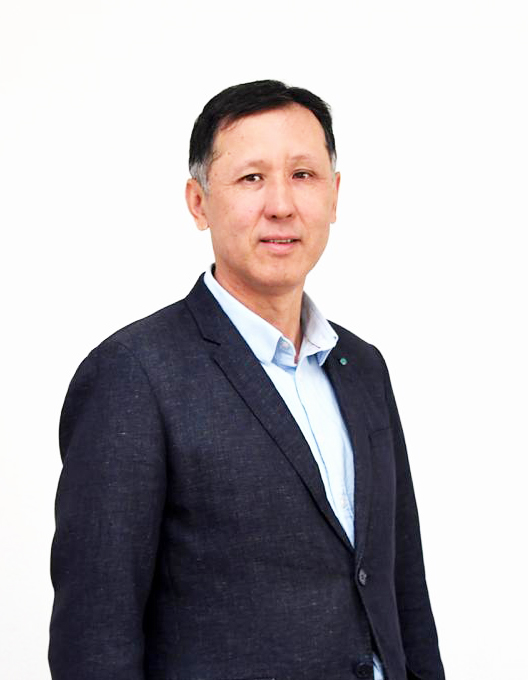- Общество
- 20 Августа, 2021
THE THORNY PATH OF THE POLES IN KAZAKHSTAN
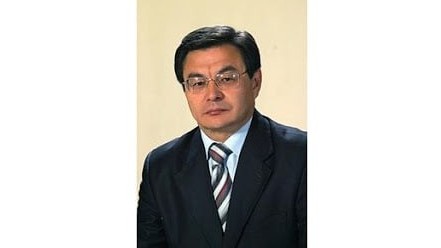
Zhetpisbay BEKBOLATULY,
professor of KazNU al-Farabi
In the late 1980’s – early 1990’s in the Soviet Union, including Kazakhstan, the process of democratization has started to develop. The declassification of documents related to the massive repression against the people who have been forcibly displaced has begun in that period. There were works revealing the history and scope of the people deported in the prewar and war years. Note that the fact of deportation of people has been avoided giving publicity for a long time. Until the 1980-s, the stereotypes about moving huge number of people have been circulated as a forced measure in view of the crisis of the international situation, the circumstances of wartime. One of the first attempt to study the history of the deported peoples of the USSR has been undertaken by prof. V. N. Zemskov. He revealed the history of labor migrants in 1940–1945 years. He provided data on their number and geographical dispersal by regions of Kazakhstan. A great contribution to the solution of this problem has made Kazakhstan scientist – academician M. K. Kozybaev. For the first time in the history of deportation people to Kazakhstan was covered by him in the first edition of the «History of Kazakhstan» for the 10th grade, and in the »Readings on the history of Kazakhstan» published a long series of documents about the tragic fate of these people. He stated that since the late 30-ies of XX century Kazakhstan began to turn in the «Stalin’s prison of nations». Indeed, every fifth citizen of Kazakhstan was a migrant or deported as a social and political grounds. In the archive documents the word «deportation» is absent. Deportation or forced migration – is a form of political repression with specific features. One of the most numerous national group among the victims of political repressions in the USSR were Poles. For years, the tragic situation of the deported Polish people in the former Soviet Union was suppressed, and archival sources on this issue were not available to researchers.
In 1939–1941 when Western Belarus and Western Ukraine entered into the USSR 102 thousands of deported Poles became residents of the republic. According to the Decree № 497-178 of Council of People’s Commissars on April 10, 1940 60667 Poles were relocated to Kazakhstan – members of the families of the repressed participants from insurgent organizations, former officers of the Polish army, police, gendarmes, landowners, factory owners and officials of the former Polish state apparatus. They were settled in Aktobe, Akmola, Kustanai, Pavlodar, North Kazakhstan and Semipalatinsk regions. Due to decision of Government of USSR and with the help of active assistance of the Polish diplomats the Polish children were sent to Poland in 1946 and 1951–1952. Memories of the citizen of the Republic of Poland, who was as a child deported to Akmola region of Kazakhstan Andrzej Mlynareka «Traces memory of my sister Barbara» could be taken as a living testimony of these tragic years (Andrzej Młynarek. «Śladami pamięci mojej siostry Barbary»). And memories of Barbara Siedlecki can be found in the Internet. In 1946, 8-year-old Andrzej Mlynarek, who in 1940 at the age of 2 year was deported to Kazakhstan returned to Poland with his mother and sister Barbara. Mlynarek Andrzej, who currently lives in the city Lasuvka that is in the Sudetenland, in 2012 has traveled to Kazakhstan and visited the places where he had spent his childhood. Maintaining communication with the author of this article, he is actively interested in problems of Polish immigration to Kazakhstan and Siberia.
On August 4th, 1951 according to «the execution of the order of the Kazakh SSR Council of Ministers on January 10th, 1951 №1 and telegraphic instructions of the Office of Commissioner of the USSR Council of Ministers, the Resettlement Department with accompanying by Mrs M. M. Morozova» 5 children of Polish nationality were sent to Poland: Vitkevich Galina Fedorovna; Lyubikovsky Maryan Dominikovich; Shablovskaya Barbara; Zelensky Boguslaw; Chivikova Larisa. The letter dated as September 3, 1951 was signed by P. Barishpol, the Deputy Chief of the Resettlement Department under the Council of Ministers of the Kazakh SSR. The documents and the facts indicated here by us are provided to scientific and wider public for the first time. The future life of those children’s of war are waiting for its researcher. Despite the numerous studies on the deportation of Poles, their place and role in the rise of economic potential, contribution to the culture, science and technology of Kazakhstan has not been sufficiently disclosed. The history of Polish culture, living in the republic is not studied well yet also issues of mutual influence and relationship of the Kazakh and Polish cultures are insufficiently investigated. In this context, the value of historical publicism and journalism is increasing. Therefore, in this article, we often refer to their books and articles.
Only in 1956 the Poles were excluded from the special settlement. By this time they had already occupied a certain place in the formed economic and production system in places of compact settlement. They played a major role in the development of virgin lands in Kazakhstan in 1950–1960s. For example, in Kokshetau region among the leaders at district level – a significant percentage of Poles were chairmen of collective farms, workers of local authorities, etc. There was one who has achieved exceptional success in the labor market among the special representative of the settlers. So, for his dedicated work in 1951 I. A. Zhenski was awarded as a Hero of Socialist Labor by the Decree of the Presidium of the Supreme Soviet of the USSR. N. Golovatsky, P. Tomarovskaya, P. Chizhevsky, Mr. Lewandowski, V. Domalevskaya, G. Polyakov, T. Ostrovskaya, B. Golchinsky were also awarded as Heroes of Socialist Labor. Many Poles were elected as deputies of the supreme legislative power of the Republic, led the Ministries, important industries and organizations. Bernard Dvorecki is a former Vice-Chairman of the Council of Ministers of Kazakh SSR.
Poles are one of the numerous and significant ethnic groups in Kazakhstan. The contribution of Polish exiles such as A. Yanushkevich, S. Zagryazhsky, G. Zelisnky, M. Viner, A. Pashkovsky, M. Lukashevich, A. Zatayevich to the Kazakh culture is priceless. During the years of forced migration thousands of Polish engineers, doctors, art workers, hundreds of professors and scientists found appliance to their knowledge, skills and talents in Kazakhstan, that were expressed in their outstanding achievements and brilliant discoveries that enriched Kazakh science, technology and culture. In the places of their residence Poles raised the agriculture of grain, livestock, vegetable sectors to the high level. Almost all the farms inhabited by Poles soon became millionaires.
According to statistics there are 41300 Poles live in Kazakhstan today. Polish Ambassador in Kazakhstan in 1990s M. Gavansky in the article published in 1998 suggested that number of Polish diaspora in census was significantly undervalued and did not correspond to reality. He concluded that if applying a discount factor to the data provided by Statistic Agency of RK, Polish diaspora of Kazakhstan could be around 60 thousand people. about 82.1% of the whole population of the diaspora is concentrated in three regions: North Kazakhstan, Akmola and Karaganda regions and in Astana.
During the entire stay in the republic, in spite of all the difficulties that the deported Poles had to go through, their development is accompanied by the growth of the Polish intellectuals. Many of whom have become scientists, teachers, artists, famous people of the Diaspora, who have made and continue to make, a significant contribution to the country’s development. By developing their own culture, they always took an active part in social and cultural life. The Polish poets Alexander Wat Yang Huscha, who were imprisoned in Kazakhstan during the Great Patriotic War, were the ones who strengthened cultural ties of Poland and Kazakhstan. Alexander Wat (real name is Khwat) is a Polish poet, prose writer and translator. He is one of the creators of Polish futurism. Yang Huscha was exiled to Kazakhstan in 1940. He wrote a cycle of poems devoted to Kazakhstan.
Many members of the Polish intelligentsia of Kazakhstan today is a special children of former Polish immigrants. They were born and educated in Kazakhstan. Preserving their ethnic identity, they are working for the good of the republic. Among them are scientists: E. Liubczanski, C. Luczinski, W. Marczewski, A. Puzanov, Y. Kulevskaya; artist: P. Rechensky, A. Kulanovsky, K. Zubritskaya; teachers: T. Khimich, A. Mokretsky; doctors: S. Prusova, N. Lukyanets; journalists: L. Kryzhanovskaya, S. Sinitskaya and others.
Let us review the creative and social activities of some Poles in more details. Pavel Ivanovich Rechensky – talented artist. He was born in 1924 in Russia, but at the age of eight he had been deported with his parents to Kazakhstan, Karaganda. He had to go through all the difficulties and hardships, through which passed the Poles during the Stalinist repression. Pavel Ivanovich Rechensky is one of the organizers of the Union of Artists of Kazakhstan. His paintings are in private collections in Poland, Russia and Germany.
Josepha Grigoriyevna Kulevskaya was born in Siberia, in Omsk. She graduated from the Physics Department of the Kazakh State University after C. M. Kirov with major in «Nuclear Physics». The entire working life of Y. Kulevskaya was associated with science. After graduation she has been left for a research fellow at the department of «Radioactive radiation». A further field of her interest was the physical chemistry, organic catalysis. More than 20 years she has been worked at the Institute of Organic Catalysis and Electrochemistry of the Academy of Sciences of the Republic of Kazakhstan. She has PhD in Chemistry.
Josepha Kulevskaya is amazing person, not only with the scientific mind, but also with great creative potential. In May 2000, at the exhibition «Beautiful impulses of the soul» her works as an artist were first presented. Since 2003, with no art education, she took up painting seriously. The main genre of her work -natyurmort and landscape. In April 2006, at the exhibition «My Kazakhstan: light and color» her best sceneries such as «Motley Alatau mountains», «Pine forest», «KokZhetpes», «Birch Grove» and «Portraits of Flowers», «Narcissuses and hyacinths» «Irises», «White lilies» were presented. This exhibition was the anniversary for Jozepha Kulevskaya and dedicated for memorial date to Polish people - 70th anniversary of the deportation of Poles to Kazakhstan. Also the exhibition presented the paintings such as «Castle near Krakow» and «Krakow-Wawel». Paintings of Jozepha Grigoriyevna Kulevskaya are in private collections in Poland and in the United States.
Great creativity has a Kazakh artist of Polish origin Xenia Zubritska. She was born in Almaty region in 1975. She graduated from the Moscow State Humanitarian University, majoring in «Art» in 2002. Xenia for a long time was engaged in patterns made from genuine leather – textile plastics. She repeatedly held exhibitions of her jewellery and paintings devoted to the numerous dates of Polonia in Kazakhstan. Also she held an exhibitions at the National State Museum after A. Kasteev, in private galleries in Kazakhstan and Kyrgyzstan. Many of her works are in private collections in Kazakhstan, Kyrgyzstan, Poland, Germany, USA, Italy.
Tatyana Vasiliyevna Khimich (Crickovskaya) was born in a family of exiled Polish politician in 1960. She is teacher of the highest qualification. In 1997 she was invited to work in the Republican primary experimental site of gymnasium «Arina» as an art teacher. There Tatyana is working with talented children. In 2001, together with the children she participated in the Olympics for the fine arts in Moscow. The works of her best pupils were exhibited at the International Exhibition in Tokyo in 2004. In 2007, the city Board of Education of Ust-Kamenogorsk awarded her with the title of «Teacher of the Year».
The initiator of the creation of the Union of Poles in Kazakhstan and the first chairman of the Polish community in the city of Alma-Ata, Albert Grigoriviech Levkovsky was born in 1928 in Ukraine (Zhytomyr region) and the age of eight had been deported to Kazakhstan with his parents during the first wave of deportation of Poles from their homeland in 1936. He has graduated from the Pedagogical Institute in Petropavlosk and grow up from a simple math teacher to a member of the board of the Ministry of Education, where he has worked for 23 years. He spent a great job on involvement of Kazakhstani Poles to the society and their active participation in cultural and social life. Through the efforts of A. G. Levkovsky being in close contact with the Embassy of the Republic of Poland in Kazakhstan classes for the study of the Polish language was opened in the secondary school №23 in Almaty, as well as the community was organized to help Poles in the East – Wspolnota Polska in Warsaw. He has done a great public job with the business community representatives, who came from Poland to Kazakhstan. He has organized trainings for Kazakhstan students Poland’s universities. For his merit to the Kazakhstan A. G. Levkovsky was awarded the Orden «Kurmet». Now he is living in Warsaw and he is the chairman of the community «My Kazakhstan» organized by the Poles – natives of Kazakhstan.
The name of a prominent architect Nikolai Ivanovich Repinsky, a member of the Union of Architects of Kazakhstan entered into the Kazakh Soviet Encyclopedia «Alma-Ata» that was published in 1983. After graduating from the Kiev Institute of Architecture and Construction in 1931 N. I. Ripinsky has participated in the project of design for a building of Opera and Ballet Theatre in Almaty, for which he was awarded the second prize at the All-Union closed competition. He has worked in Ust-Kamenogorsk from 1950 to 1953, where he seriously concerned with the detailed planning of the city. From 1954 to 1968 N. I. Ripinsky has worked in Almaty as chief architect in the country’s largest design institute. A lot of projects where N. I. Ripinsky was directly involved as the chief architect have been developed by the Design Institute for 14 years. Among them there is a project of the general plan of Karatau city, also the project on the organization, planning and building of the central district of Almaty and others.
Poles are active participants of the economic and political reforms conducted in the country. At the present time Kazakhstan and Poland are leaders of economic and political reforms, respectively, in Central Asia and Eastern Europe. During difficult transition period in 1990s an experience of economic transformation of Poland was especially valuable for Kazakhstan. Leading Polish economists, including Leszek Balcerowicz, for several years, provided advice to the Government of Kazakhstan.
In the 1990s, the Republic of Kazakhstan was lagged behind other countries in the production of agricultural product. To solve this problem, the restructuring of agricultural structures began in 1991. In 1998 138 agricultural associations have been formed in the country. In 1999, in the North-Kazakhstan oblast the JSC «Holding Kazexportastyk» was established, that is the largest grain company, operating in the territory of North Kazakhstan and Akmola region. It consists of LLP «TaiynshaAstyk», which is engaged in the production and processing of agricultural products, breeding of cattle. Center of the company is the village Yasnaya Polyana of Taiynsha region of North Kazakhstan oblast. Former Extraordinary and Plenipotentiary Ambassador of the Republic of Poland in Kazakhstan Zdzislaw Novitsky called Yasnaya Polyana the small Warsaw in Kazakhstan. And it is no coincidence. The village was founded in 1936 by Polish immigrants from Ukraine. All the villagers were mostly Polish by nationality, of all 183 displaced families Poles were 127 families. Today the village is home to the third generation of Poles. General Director of LLP «Astyk Taiynsha» is Anatoly Borisovich Rafalskiy. He is Polish, a native of Yasnaya Polyana village, Anatoly is agronomist by profession, graduated from Tselinograd Agricultural Institute.
Now we present more details of Yasnaya Polyana village. The Yasnaya Polyana village is particularly revealing one in the North-Kazakhstan region. There is a hospital, a school, a cultural center, shops, church, livestock farms, tractor fleet equipped with the latest technology. But the proud of village is its people. Many natives of Yasnaya Polyana village became worthy representatives of the Polish intelligentsia, working for the good of the republic’s prosperity. Among them, there are V. S. Bochkovsky – Akim of Enbekshildersky region, V. P. Makowski – Akim of Taiynsha region of North Kazakhstan oblast, F. A. Galitsky – Doctor of Medical Sciences, V. I. Zaichkovski – candidate of veterinary sciences, A. I. Malinowski – Candidate of Agricultural Sciences, F. I. Ostrowski – Ph.D., V. A. Andzhievskaya – Doctor of Medical Sciences.
Anton Iosifovich Malinowski – Candidate of Agricultural Sciences, was born in 1956 in Yasnaya Polyana village of Chkalovsky region Kokshetau oblast in a family of Poles deported from Ukraine in 1936. In 1983 he was engaged in selection of the Kazakh white breed of cattle. Rock removal works was carried out at the farm «Alabota». In 1985, derived cattle rock type was called «Alabota» and A. I. Malinovsky was awarded title of «Best breeder of the Republic of Kazakhstan».
A native of Yasnaya Polyana village is Franz Antonovich Galitsky – Doctor of Medical Sciences, professor, head of «Forensic medicine» of the Kazakh State Medical Academy (Nur-Sultan). He is the author of two collections of scientific papers on forensic medicine, 14 invention patents, 90 scientific papers and teaching aids.
Kazakhstani Poles support and strengthen ties with their historical homeland. Kazakhstan has five Polish companies dealing with national and cultural revival. «Polonia» channel which is satellite broadcasting for several years carried out in Northern Kazakhstan. By agreement between the ministries of education of our countries Teachers from Poland are working in Kazakhstan. Every year, children and students who are actively learning Polish language, go to rest to Poland. About 600 students of Polish origin from Kazakhstan are studying at higher education institutions on their homeland.
Public Association «Polish Cultural Center of Almaty» was founded in 1993. The main purpose of the center is to promote the study of the history, language, culture and traditions of Poland, charity, conducting cultural and educational events, recitals, concerts, exhibitions, meetings.
The Union of Poles in Kazakhstan was established in 1994. In different periods it was headed by worthy representatives of the Polish intelligentsia. From 1999 to 2007, chairman of the Union of Poles in Kazakhstan was Ivan Bernoldovich Zinkevich, Professor, Doctor of Law. His parents in 1936 with children were deported to Kazakhstan from the Zhytomyr region of Ukraine.
Ivan Bernoldovich Zinkevich was born in 1939 in Krasnokamenka village of Kellerovskiy region of Kokshetau oblast. In 1963 he went to the technical department of the Almaty special police school. In 1973 he graduated from the investigative department of the Moscow High School of the Ministry of Internal Affairs, where he immediately enrolled to the graduate school. Ivan Zinkevich successfully defended his PhD thesis on the development issues of forensic science in Poland.He was awarded the academic title of professor of three universities of Kazakhstan. He was awarded the degree of Doctor of Law by Polish Ministry of National Education in 2000, according to the number of published works on the problems of criminology. He is a member of the Advisory Council of the Marshal of the Senate of Poland and a member of the National Council under the President of the Republic of Kazakhstan. He has been included in the leadership of the World Council of Polonia with the residence in the US.
Since 2007, the Union of Poles was chaired by Vitaly Zifridovich Svintsitskyi. He is from a family of Polish immigrants specially deported. He was born in 1955 in Green Guy village of Chkalovsky region of Kokshetau oblast. Since 1999 he was the chairman of the Pavlodar regional Polish society «Polonia». He is one of the initiators of the movement «Think of the children». He provides financial support to the pupils of Pavlodar boarding school, and is actively engaged in the moral and creative upbringing of the youth. On his initiative, a drama school «Promen» («Luch») was opened within the regional Polish society «Polonia», which was established on the basis of the drama group at the Catholic church in Pavlodar. He was awarded the medal «10 years of Kazakhstan’s independence» for a great contribution to the revival and promotion of national culture and language, strengthening of inter-ethnic harmony, peace and friendship.
Currently the Union of Poles in Kazakhstan is chaired by Oleg Cheslavovich Czerwinski, a professional journalist. He was born in Krasnoarmeysk town of Kokshetau oblast; son of special migrants. He graduated from the faculty of journalism of the Kazakh State National University named after аl-Farabi, Academician of the Academy of Journalism of Kazakhstan. Author of publications in the Kazakh and world press. At various times, he led the media such as the newspapers «Business Week», «New Generation», the official newspaper of the Government of Kazakhstan «Kazakhstanskaya Pravda», Broadcasting Company «Shahar». He is chief editor of «Petroleum» analytical magazine since 2000. Member of the Union of Journalists of Kazakhstan, winner in the category «Economic Review» Prize of the Union of Journalists of Kazakhstan in 2012 year. He was awarded the medal «10 years of Kazakhstan’s independence».
In conclusion, it should be noted that the Polish intelligentsia in Kazakhstan contributes to the development of the country, contributes to the prosperity and the strengthening of friendly relations between Kazakhstan and Poland. The achievements of Polish diaspora could become the source of scientific references. Detailed research of this issue requires thorough acquaintance with the materials stored in the archives. In connection to this the Polish-Kazakh cooperation is needed in this area.

2927 раз
показано146
комментарий